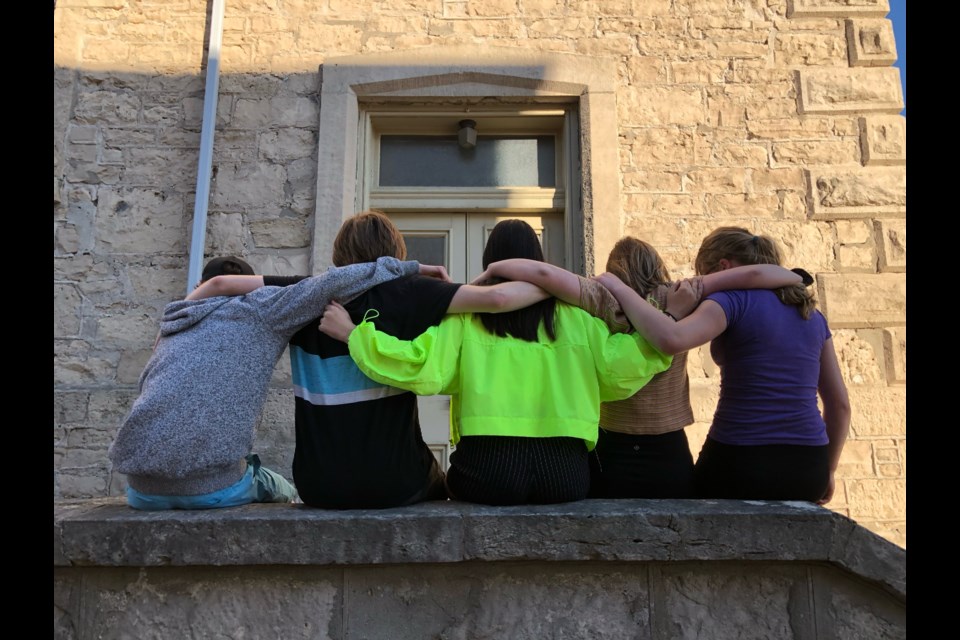GUELPH - The death of a parent or sibling is one of the most stressful events a child can experience, says the Children and Youth Grief Network.
In fact, one in four children will experience the death of a parent or sibling by the time they turn 18.
Yet, it’s often said that “grieving children and youth can be the 'forgotten mourners' when someone dies in their family,” said Madison Lambden, the secretary of The Nightingale Centre – a non-profit that provides grief and bereavement support to children and teens in Guelph and Wellington County.
While death is universal, processing it is not always easy, especially for children who often lack the means to express their feelings.
“When you are younger and facing the loss of someone who's very close to you, like a parent or a sibling, that leaves a huge traumatic hole. And if it's not dealt with properly, then that's where the mental health issues can come down the road,” she said.
But parents and caregivers don't always know how to help.
“Sometimes we’re grieving so much that it’s hard to even imagine how you’re going to talk to a child about that,” said Pat Stuart, executive director of Hospice Wellington. "There's certainly an art to it."
First, it's important to understand children grieve differently than adults. This is because their brain development changes over time, according to Sue Lambden, the acting executive director of The Nightingale Centre.
“And so their understanding of death changes over time,” she said. “You have to be able to speak to them, or work with them in a way that they can comprehend.”
If a three-year-old, for example, experiences a death in their immediate family, “they’re probably going to think they’re just gone. At 11, they understand that, but they don’t know how to express those feelings. So it’s supporting them and teaching them how to process those feelings.”
As a society, Sue said we’re better than we used to be at helping children grieve, but there’s still a long way to go. For instance, it’s still common practice to keep children separate from the funeral proceedings.
“They need to be a part of all that, right from the start – but only if they’re wanting to; never force them,” she said. “If they’re removed from anything, like you don’t tell them how mommy died, or they don’t go to the funeral, then they feel like they’re left out.”
Involving them in the overall grieving process helps normalize death and their emotions around it, which she said is an important part of dealing with grief: If they don’t learn how to process their emotions around death properly, Sue said it can lead to trauma, which can lead to severe mental health issues later in life.
One of the ways they do this at Nightingale is through artistic activities.
In one activity, children take two balls of Play-Doh, each a different colour.
The first ball represents the person who died, and they form it into something that reminds them of that person – like a heart, for example. The second is turned into something that represents themselves. Then, they squish the two balls together.
“Once that is done, they are asked to try and separate the two colours, which is impossible. Now it shows the child that they will always be bonded to their person, but it’s a different bond than it was. Not two separate people but one together, always bonded.
“It teaches children that their person who has died will always be with them,” Sue said. “It teaches them how to meet grief in a healthy way to carry with them forever.”
For the older children and adolescents, she said it’s more about spending time talking about the person who died.
“We do scavenger hunts and they go find something that was meaningful to the person who died. It might be a baseball cap or a book they liked to read, and they can talk about it and why that’s special to them,” she said. “So it’s drawing out those emotions and feelings, and then learning how to process them.”
She said it’s also important to be appropriately honest with them about what’s happened.
By that, she said you wouldn’t share any gruesome details, but be honest and literal about how they died – don’t use euphemisms like “passed away.”
“For the younger ones, the understanding of words for them is more literal. So it's best just to use the correct verbiage. And give them what they can handle in small amounts,” she said.
Regardless of age, it’s important for the name of the person who died to be used, to show their life is to be shared and celebrated,” said Beth Burrows, a grief facilitator at Nightingale. “And that the fact that they died is not kept in dark little corners but is instead brought out into the bright sunshine.”
When they share their stories of loved ones, she said it normalizes the loss and helps them find community, “and the knowledge they don’t have to feel different and alone.”
November is National Children and Teens' Grief Awareness Month. Nightingale is asking community members to get involved with the organization as an advocate or donor, "so we can continue to support the grieving hearts in our community."
